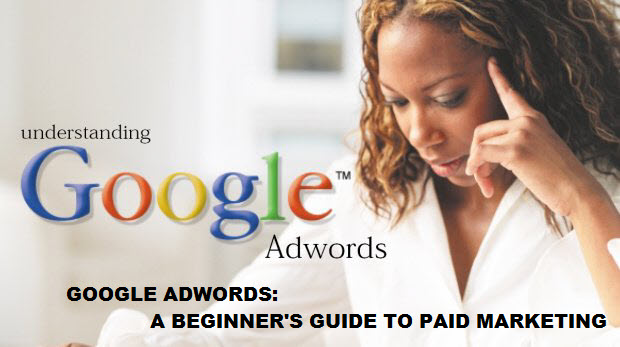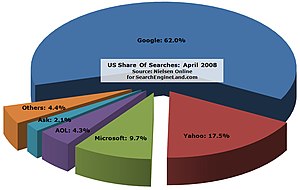
As you have read many of the posts in this blog, you have learned that you can structure your site in a search engine friendly way, use SEO, and to build links for authority, trust and traffic. You also must be social (media) and write blog posts without paying for the results. However, this is not always the only solution for small businesses.
It is often the case that small businesses do need to have a marketing budget for the web, too. It is unlikely that they will spend as much money in this form of advertising as they would in the offline world. Nevertheless, paid advertising online is an important part of search engine marketing.
So, what is it?
Pay per click advertising is just what it sounds like. Rather than just working for ranking in the search engines, which is done through all of the methods previously listed here, you will pay for ranking results.
What are the basics to get started?
Pay per click advertising is highly effective and it can be one of the best tools for your small business’s website or blog.
Google Adwords Online Campaigns
By far the best pay per click model on the web is Google Adwords. Since Google is the market place leader as a search engine, it makes sense that your advertising dollars should go towards marketing using their platform. It is perhaps the best way to explain pay per click advertising, too.
When you enroll in the Google Adwords program, you get to display your ads on Google and the large network (search, content/display) that the company has. You will pay for only the clicks that people make. In other words, your ad will be displayed on various search engine results pages and on other websites, if you choose to. When someone sees these ads and clicks on them, they end up at your blog or website. You only pay for the ads when someone clicks on them. So, in effect, you get a branding/visibility lift, and new visitors when your advertisements are clicked, and only then do you pay (to Google).
There are several things to know about how this form of pay per click functions:

- Image via Wikipedia
- You create your ads around your target pages and intention, and choosing the keywords used in them. This is another instance when you want to have the right keywords selected and use also consider local search terms (in other words, those with the small business’s city and state in them.)
- When someone goes to Google and performs a search using those keywords you have selected, the ad may appear next to the search engine results list. This is your target market, the search itself is very targeted. We call this “user intent ad matching”.
- Your ad does not appear every time. The frequency of your ad showing is dependent on the amount of competition for the keywords you select, bid prices and several other factors. A good strategic option can be to serve ads using long tail keywords, local search keywords, to not use up your daily budgets for the most competitive keywords. Ongoing testing is necessary.
- Those who view the ads can easily click on them to get to your website. Those ads should be benefit driven, and with a call to action on them.
- When you use Google’s local and regional targeting feature of Google Adwords, you can get even more powerful results. Here, you can target which areas of the region you would like the ads to display in. You can narrow down the selection to just your city or region, where your company’s potential customers are located.
- When you choose local ads and keyword targeting through this method, the ad will display with the physical address of the business within the text ads. With the recent changes to how local search ads are shown, you will see mixture of organic/natural results and Google maps mixed into the paid results.
As you can see, this type of tool can be very powerful to a business, especially a business that is looking for opportunities to grow locally. However, it is just as important for individuals to know the limitations here.
How to pick keywords and phrases
There is competition with keywords in pay per click advertising. In other words, if you choose “bankruptcy attorney New York” as your target keyword, then there are going to be numerous other attorneys and also search marketing firms using the same, or similar approach. Therefore, you need to consider which keywords are going to be best for you based on what results they produce and the amount of competition for them. A portion of your budget should be used to test this — in fact, consider it an ongoing effort.
In order to get the best keywords for your results, you do have to take the time to discover the level of competition. What is nice about the Google pay per click model is that they provide users like you with a keyword tool. This tool will help you to choose the right keywords for your site.
Here are some tips to help you approach the right keywords:

- Image via Wikipedia
- Go local. Include city and states within the keywords. Local/personal search will also use IP detection, so test both versions of keywords.
- Consider long tail keywords (those over three+ words long) because there is less competition. They can be very targeted as well (conversion).
- Do not worry about stop words. These are small words such as “in, a, and and” which do not affect the keyword usage in Google.
- Look for longer phrases that have lower competition levels. The keyword tool will provide you with a chart to see where the competition is in the results.
- Find keywords using ‘exact match’ results, and do the same inside your Adwords campaigns. (keyword match type)
There are other platforms out there outside of Google Adwords. Bing (Microsoft) Adcenter is very cool, and you should take the time to consider getting started playing with it too.
Pay per click is powerful. What you do not want to do is to overlook this method of advertising online. Visit the Google Adwords website to learn more about this tool.
More tips for Pay Per Click marketing success.
Your business model should include pay per click marketing as a tool to use to attract customers to the website. Keep in mind that it should be part of the budget you present to your accountant.
Here are a few tips to help you to have success with this method of marketing:

- Image via Wikipedia
- Do your own keyword searching and research. Do not allow the Google systems alone to dictate which keywords your website will receive ads for. Use tools like KeywordDiscovery.com and Wordtracker.com
- Set a budget for the pay per click advertising. Set a daily budget, and count it out for the week, month. The system will automatically stop sending traffic to the site once the budget is met. Test to see when the “best” visitors come to your site. If nobody visits during 12-6am, for example – you can stop / pause the ads during that time.
- Ensure the landing pages that your visitors come to uses keywords and test for conversions (action/events). In other words, this is the page that customers will come to when they click on the link. Ensure that it gives them the information they need to react to your site. Be sure an email form capture is on this page, too.
When you are planning to invest a good deal of your money into pay per click marketing, it is critical to learn more about it. You can find other guides to offer more information.
Just be sure that you do use pay per click marketing as part of the Internet marketing strategies you use for yourself and others (if you choose to provide a service).
Related articles to PPC Marketing
- A Step-by-Step Guide to Creating a Google AdWords Account (learngrowbestrong.com)
- What is PPC and How Does it Relate to SEO? (ecommerce.suite101.com)
- 25 Resources for Pay Per Click Event Marketing (eventmanagerblog.com)